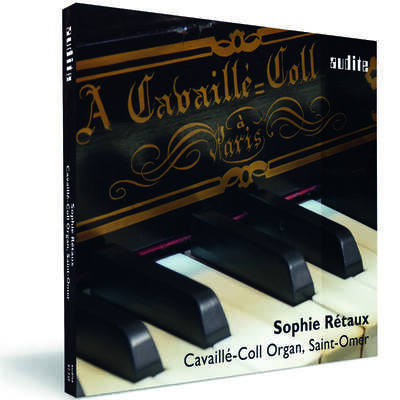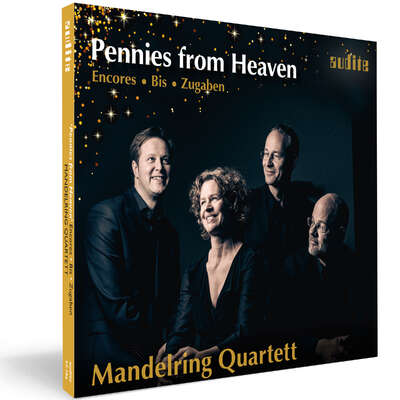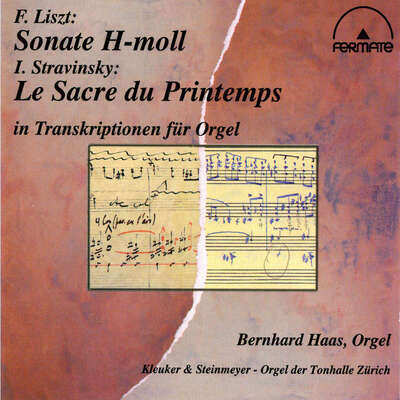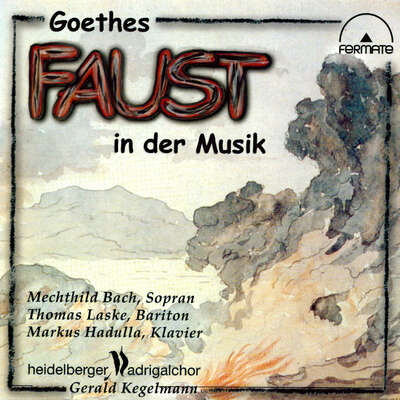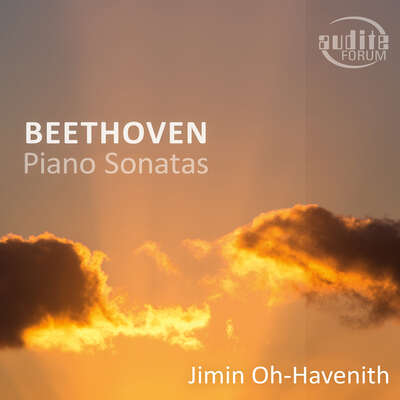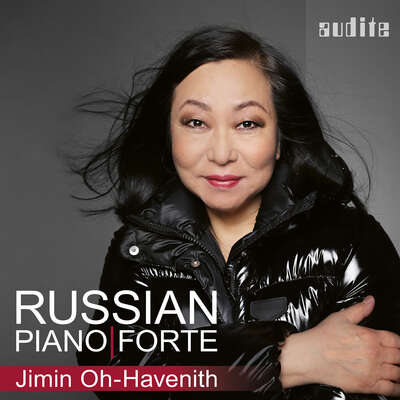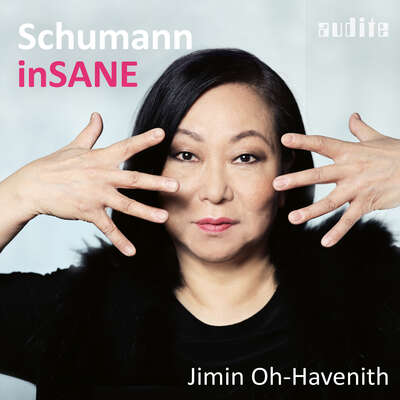
Nach der äußerst erfolgreichen Veröffentlichung von Griegs „Lyrischen Stücken“ legt die japanische Pianistin Hideyo Harada nun ihre zweite SACD vor, die zwei gegensätzliche Zyklen zusammenbringt: Tschaikowskys musikalische Poesie und Rachmaninows virtuose Kunst , aus einem Thema...mehr
"Harada sucht die Einheit in der Vielfalt und findet eine überzeugende Balance aus interpretatorischem Kalkül und intuitiver Klanggestaltung." (klassik.com)
Details
| Pyotr Ilyich Tchaikovsky & Sergei Rachmaninov: The Seasons & Variations on a Theme of Corelli | |
| Artikelnummer: | 92.569 |
|---|---|
| EAN-Code: | 4022143925695 |
| Preisgruppe: | ACX |
| Veröffentlichungsdatum: | 29. Oktober 2008 |
| Spielzeit: | 68 min. |
Informationen
Nach der äußerst erfolgreichen Veröffentlichung von Griegs „Lyrischen Stücken“ legt die japanische Pianistin Hideyo Harada nun ihre zweite SACD vor, die zwei gegensätzliche Zyklen zusammenbringt: Tschaikowskys musikalische Poesie und Rachmaninows virtuose Kunst, aus einem Thema einen ganzen Kosmos musikalischer Charaktere und dramatischer Spannungen entspringen zu lassen. Plastisch gestaltete Details und ein genaues Verständnis der großen Bögen und der inneren Zusammenhänge zeichnen Haradas Interpretation aus. Virtuosität wird, ganz im Sinne der Komponisten, zum Mittel lebendigen und intensiven Ausdrucks.
Durch bewegliche, gleichsam atmende Tempi und feine dynamische Differenzierungen gestaltet die japanische Pianistin in Tschaikowskys Jahreszeiten die Details plastisch aus und macht verborgene Beziehungen zwischen den Stücken hörbar. Obwohl Tschaikowsky die zwölf Stücke über die Monate des Jahres ohne zyklischen Anspruch komponierte, werden sie hier zu Stationen einer musikalischen Erzählung.
In Rachmaninows Corelli-Variationen tritt die übergeordnete Gliederung des Werkes und damit sein dramatisches Konzept deutlich hervor. Besonders in diesem virtuosen und anspruchsvollen Werk bewährt sich Haradas untrüglich sichere Technik als Mittel intensiven und lebendigen Ausdrucks.
Besprechungen
Kulimu | 35. Jg. Heft 1 | Thomas Schulz | 1. Juli 2009 Interessante Werkkombination
Die japanische Pianistin Hideyo Harada gehört zu den in Deutschland eherMehr lesen
American Record Guide | Mai/Juni 2009 | Vroon | 1. Mai 2009
New recordings of this keep coming, and before the 1990s they were very rare.<br /> <br /> These two are almost textbook cases. The Japanese woman is veryMehr lesen
These two are almost textbook cases. The Japanese woman is very sensitive – too sensitive, I would say – and has a bright and somewhat brittle tone. Her tone is almost standard Japanese, and her ever-so-sensitive readings sound very feminine. The Russian pianist is certainly more masculine but still not insensitive at all. (That would never do for Tchaikovsky.) His tone is much sweeter and gentler, less hard and percussive. He almost floats thru some passages. He does what he wants with the music; there's a lot of give-and-take, loud-and-soft – contrasts are important in his interpretations. So are phrasing and punctuation. Tempos are elastic. He is never mechanical, never routine. He is listening to every note and phrase. Everything has meaning in the whole.
The engineering makes a difference, of course. If Mr Primakov comes across as warm and atmospheric the engineers certainly contributed to the effect. It's very moving. SACD technology doesn't do much for a piano – or at least I can't hear it. When stereo came along I continued to buy piano records in monaural sound, and I still have Philippe Entremont's delightful Tchaikovsky album (monaural). The Audite engineers are not interested in atmosphere or warmth but in Germanic clarity.
I can no longer say whether a new recording eclipses the three or four older ones I have loved so long. With something as good as Primakov's Tchaikovsky I just enjoy it and add it to the others.
These two are almost textbook cases. The Japanese woman is very
Fanfare | May/June 2009 | Peter J. Rabinowitz | 1. Mai 2009
Hideyo Harada’s wide international training includes study in Moscow with Victor Merzhanov, and on these new accounts of two Russian staples, sheMehr lesen
Still, when the playing doesn’t work, you’re more likely to accuse her of excessive belligerence than of excessive bel canto, more likely to regret a lack of spontaneity than any lack of discipline (surely, the Intermezzo of the Rachmaninoff needs more improvisatory character, just as his 14th Variation needs a more retrospective spirit). In the end, then, this CD is more memorable for its kick than for its grace – for the vitality of “August”, for the implacable grip of Rachmaninoff’s Fifth Variation, for the bite of the 10th, for the bravura confidence with which she builds to the Intermezzo and later to the Coda.
Recommendation? This recital can’t displace the more richly characterized classics from such pianists as Wild in both works or – in the Rachmaninoff – Ashkenazy (especially his earlier recording), Rodriguez, and Grimaud. Still, heard on her own, Harada will provide plenty of pleasure, especially given Audite’s state-of-the-art sound. Well worth the attention of pianophiles.
www.ResMusica.com | 7 avril 2009 | Laurence Le Diagon-Jacquin | 7. April 2009 Deux Russes pour une Japonaise…
Si Tchaïkovski est connu du grand public pour ses célébrissimes balletsMehr lesen
Gramophone | April 2009 | Harriet Smith | 4. März 2009
Two great Russian piano masterpieces in a subtle and soulful recording
Hideyo Harada offers a reading that thrills
What a compelling coupling this is, and how good to hear Tchaikovsky's still-underrated cycle given a reading which conveys its grit and grandeur asMehr lesen
Tchaikovsky's flitting lark (March) and his irresistible walzes for April and December are a particular delight in Hideyo Harada's hands. She's not afraid of full-blooded climaxes either, as witness the choppier waters of June's initially lilting barcarolle. And her "Autumn Song" (October) is desolate enough to soften the hardest of hearts. Pletnev's masterly version remains a benchmark, and though Harada matches him in soulfulness, there are times when his more vigorous approach wins the day, not least in a wild harvest (August) and a hunt (September) where you can almost smell the blood.
Harada is also up against a very fine Pletnev recording in Rachmaninov's Corelli Variations, that solo masterpiece just one opus number apart from his unaccountably more popular Paganini Variations. Pletnev may have the historical advantage of performing on Rachmaninov's own piano, but there's little in it, musically speaking. The subtlety with which Harada approaches the theme itself sets the scene for a reading that thrills as much for its nuance as for its brilliance – especially the extrovert Vars 11, 16 and 18. The wonderfully warm recording sets the seal on a highly recommendable disc.
Le Monde de la Musique | Mars 2009 | Jacques Amblard | 1. März 2009
On voit ici ce qu'est une parfaite lecture d'une partition, associée à un non moins parfait enregistrement, clinquant dans les aigus et puissantMehr lesen
Dans les Variations Corelli de Rachmaninov, toutes les variations – typiques du compositeur et extrêmement pianistiques – sont libidineuses, viriles à souhait. Celles qui prévoient, toujours d'une façon typique du Russe, de petites notes foudroyantes comme des coups de fouet, pâtissent peut-être de ce manque d'emportement. Pour ces dernières, il faudrait sans doute un Volodos, un Hamelin, un Angelich.
Pianist | März/April/Mai 2009 | Olaf Ditmann | 1. März 2009
Mitunter ist die japanische Pianistin Hideyo Harada, die in Tokio,Mehr lesen
Record Geijutsu | March 2009 | Koji Simoda | 1. März 2009 Tchaikovsky: Siki, Rachmaninov: Corelli no Shudai ni yoru Hensoukyoku
Fukuiku taru Jyojyou ni michita Disc no Toujyou da. Harada Hideyo ha naigai no rippa-na Gakureki ya Konkuuru-reki mo sarukotonagara, watasi haMehr lesen
Mazu, 《Siki》da. Rossia-teki na Jyojyou wo kanzen-ni Shucyuu ni siteirudakedehanaku, Taguimare naru Ongaku no Jyoukyou-Byousha de aru. Mazu, 〈Robata-nite〉ya, 〈Byakuya〉ya 〈Aki no Uta〉wo kiite mite hosii. Nukumori, awaki Hikari, setusetu-taru Aisyuu… Kattatu na〈Toriire〉ya, 〈Kari〉no Kagayakasisa. 〈Troika〉no Rin-tosita tumetai Kuuki to Hitobito no Kokoro no Atatakasa ga kanjirareru. Rachmaninov ha, noble-na Shudai kara. Suji no tootta fukai Gakufu no Yomi de Kaku-Hensou ni Taiji siteiru. Hensou no Renzoku-sei to douji-ni, Gakushou nimo nita Matomari mo jyuubun Isiki sita Kousei. Hitotu-hitotu no Oto no Ginmi mo Rossia-fuu ni fukai. Berlin no Kyoukai deno Rokuon mo Miryoku no Kiki-Gotae. Houjin ni yoru subarasii Disc ni osiminai Hakusyu wo!
opushd.net - opus haute définition e-magazine | numéro 52, 14-02-2009 | Jean-Jacques Millo | 14. Februar 2009
Les œuvres pour piano de Piotr Ilitch Tchaïkovsky n’ont pas laMehr lesen
www.concertonet.com | Février 2009 | Sébastien Foucart | 8. Februar 2009
Distinguée à de nombreux concours internationaux (Genève en 1984,Mehr lesen
allmusic.com | February 2009 | Mike D. Brownell | 1. Februar 2009
Tchaikovsky's set of 12 character pieces entitled The Seasons came as aMehr lesen
Scherzo | Febrero 2009 | Emili Blasco | 1. Februar 2009
Algunos de los motivos que convierten Las estaciones de Chaikovski en unaMehr lesen
Fono Forum | 2/2009 | Ingo Harden | 14. Januar 2009 Konzertant
Hideyo Harada spielt Tschaikowskys „Jahreszeiten“ nicht als intime Hausmusik, sondern konzertant und zugleich bedeutungsvoll – näher beiMehr lesen
klassik.com | Janaur 2009 | Felix Stephan | 7. Januar 2009 | Quelle: http://magazin.k... Verführerisch
Im Grieg-Jubiläumsjahr hatte die Pianistin Hideyo Harada nachhaltig aufMehr lesen
Rondo | Dezember 2008 | Tom Persich | 10. Dezember 2008
"Jahreszeiten" – wer denkt da nicht sofort an die berühmte SchöpfungMehr lesen
Rondo | Dezember 2008, CD-Neuerscheinungen online | 3. Dezember 2008
Nach ihrer feinfühligen Grieg-Einspielung aus dem vergangenen Jahr legtMehr lesen
Diverdi Magazin | Noviembre 2008 | José Velasco | 1. November 2008
Las folías de Rachmaninov
Placentero recital ruso de Hideyo Harada en Audite
Elijan su mes del año y escuchen cómo lo describió Tchaikovski en su ciclo Las estaciones, uno de los más hermosos y emblemáticos ejemplos delMehr lesen
Tras pasar todo un año en las manos de la pianista Hideyo Harada, desembocamos en una de las más fascinantes y tardías composiciones sobre el tema de la folía. En jazz lo denominarían un standard, y sobre ese standard escribiría Sergei Rachmaninov en 1931 su última obra para piano solo: veinte variaciones, un intermezzo y una coda, pensando que el tema pertenecía a Arcangelo Corelli, pues el ruso lo tomó de su Sonata op. 5 nº 12. Con agrupaciones y separaciones de notas que dan a la obra un carácter más abstracto o distanciado que en otras versiones, el mismo discurso parece formarse con nuevas palabras, y Harada obtiene poesía extirpando lirismo. Con su prisa de insecto grande, la pianista se muestra voluntariamente confusa, casi en un intento de deconstruir la obra, de mostrarnos sus piezas, sus huesecillos, con un sonido nítido y de resonancia cortísima. Es una interpretación dulce, pero no delicada, con un modo muy particular de tocar, de pulsar, de subrayar sobre el vacío y dejar solas a las notas, casi al borde de sí mismas.
Con su frialdad frágil no es la mejor versión de las Variaciones sobre un tema de Corelli, pero no es una versión más. Podemos preferir a Ekaterina Mechetina o a Vanessa Wagner, pero nunca olvidaremos la extrañeza suave y correcta de esta japonesa. Imaginamos en ella el desasosiego manso de las vidas casi normales de los personajes de las novelas de Haruki Murakami.
Neuigkeiten
Algunos de los motivos que convierten Las estaciones de Chaikovski en una obra...
New recordings of this keep coming, and before the 1990s they were very...
Tchaikovsky's set of 12 character pieces entitled The Seasons came as a...
Mitunter ist die japanische Pianistin Hideyo Harada, die in Tokio, Stuttgart,...
Hideyo Harada’s wide international training includes study in Moscow with...
Tchaikovsky: Siki, Rachmaninov: Corelli no Shudai ni yoru Hensoukyoku
On voit ici ce qu'est une parfaite lecture d'une partition, associée à un non...
Two great Russian piano masterpieces in a subtle and soulful recording
Distinguée à de nombreux concours internationaux (Genève en 1984, Schubert de...
Les œuvres pour piano de Piotr Ilitch Tchaïkovsky n’ont pas la réputation...
"Jahreszeiten" – wer denkt da nicht sofort an die berühmte Schöpfung –...
Nach ihrer feinfühligen Grieg-Einspielung aus dem vergangenen Jahr legt die...




























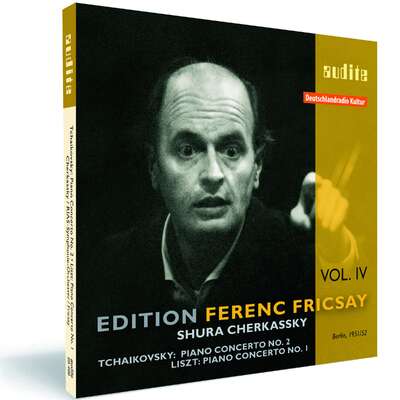
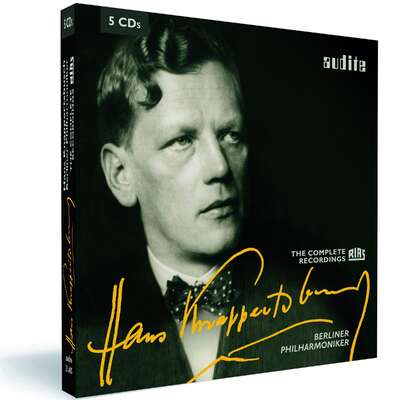

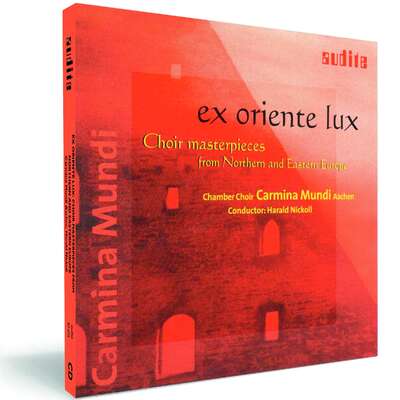
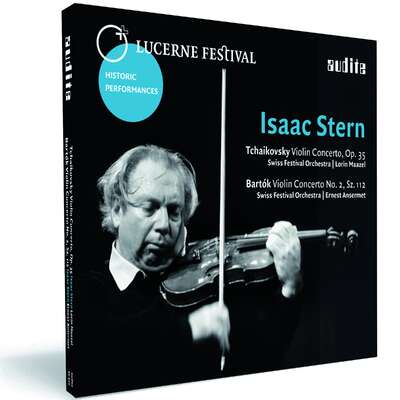
![23446 - k[NOW]n Piano](/image/product/3d/carousel/23446-known_piano.jpg)
